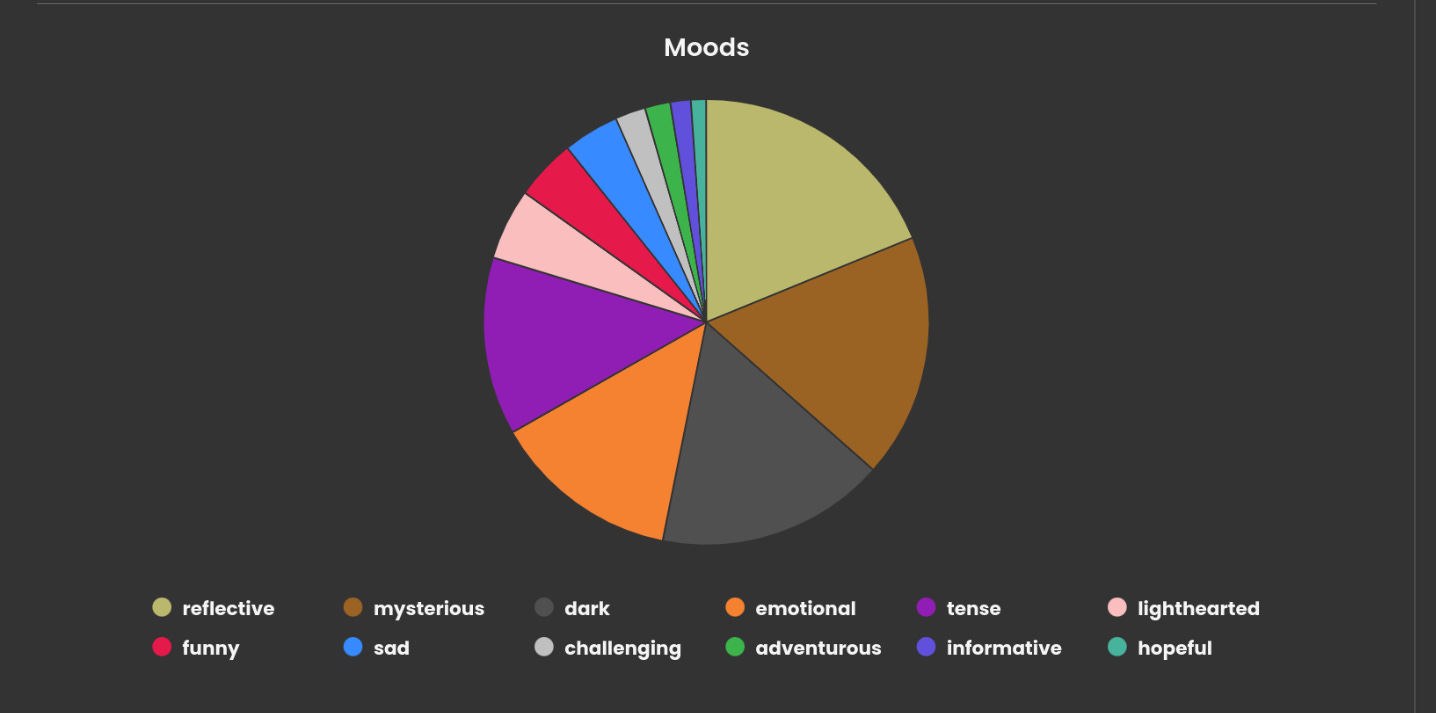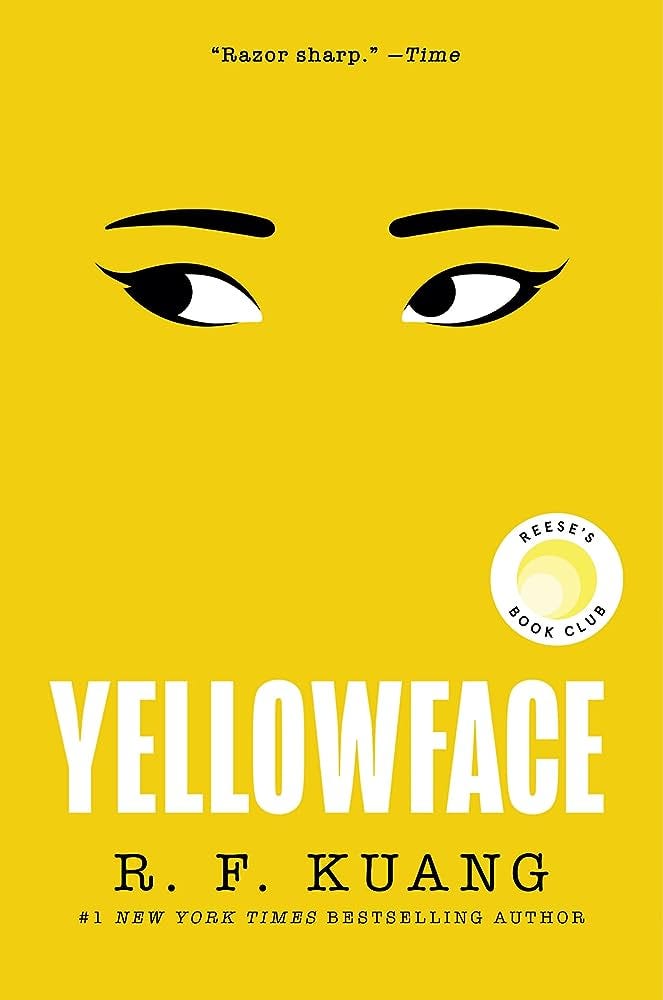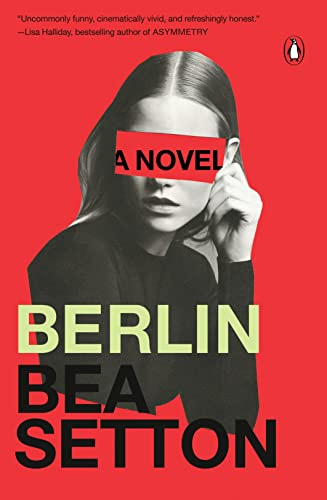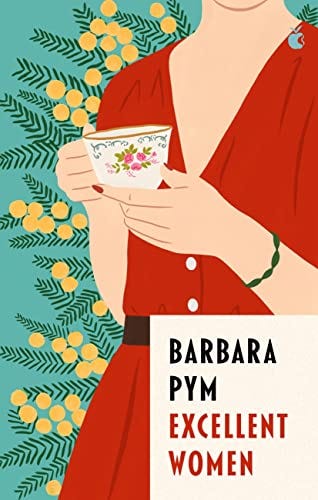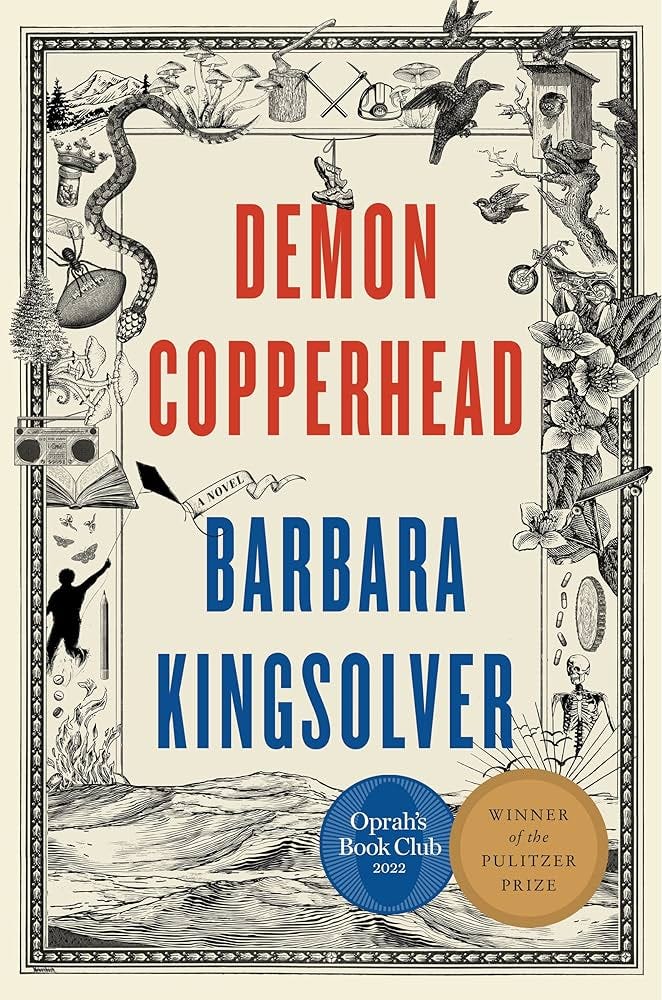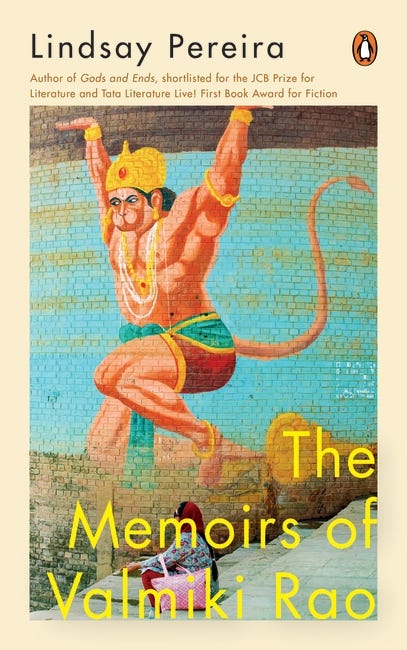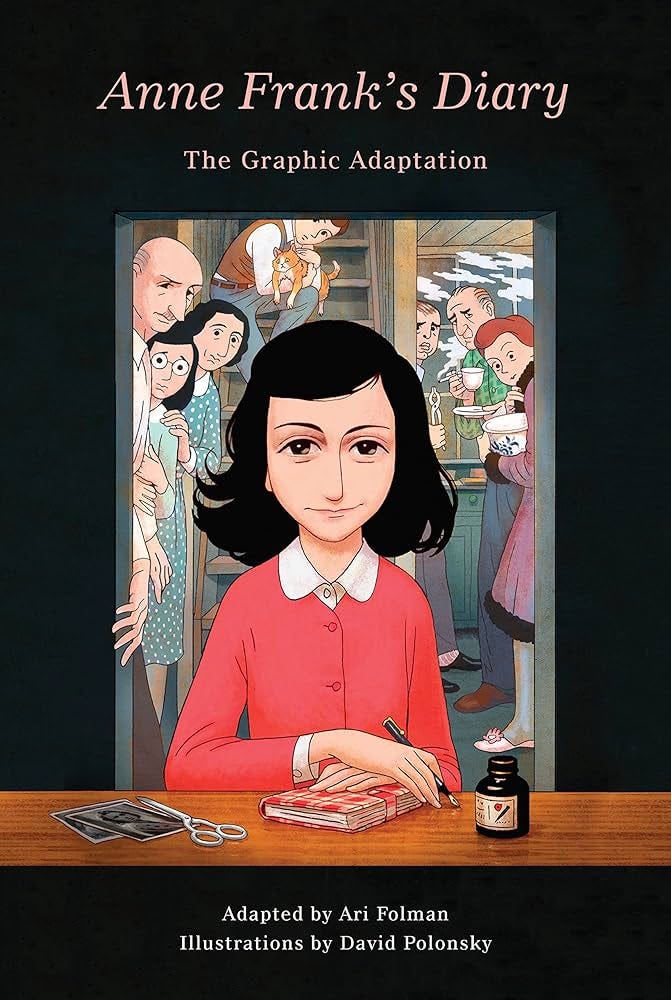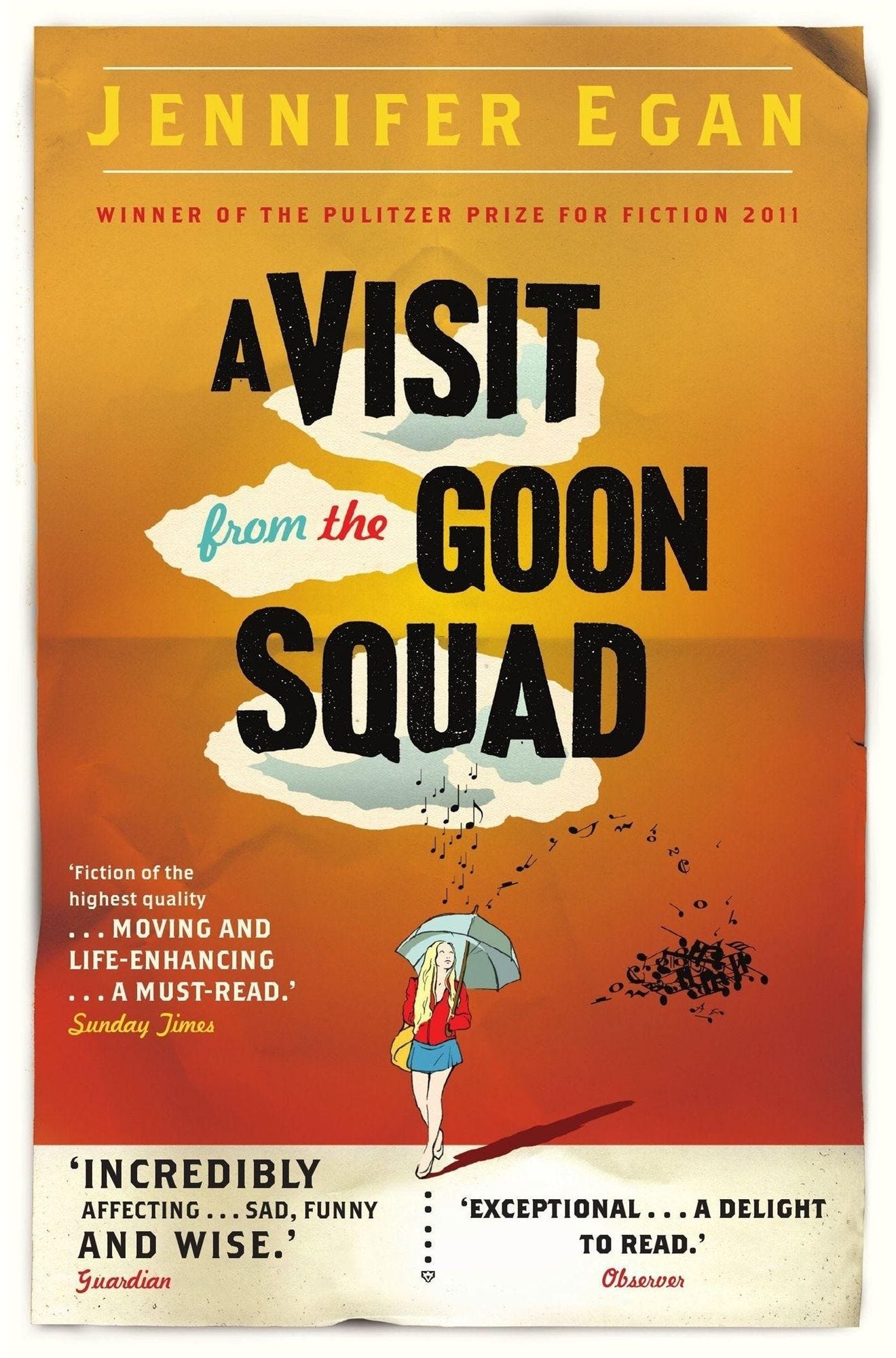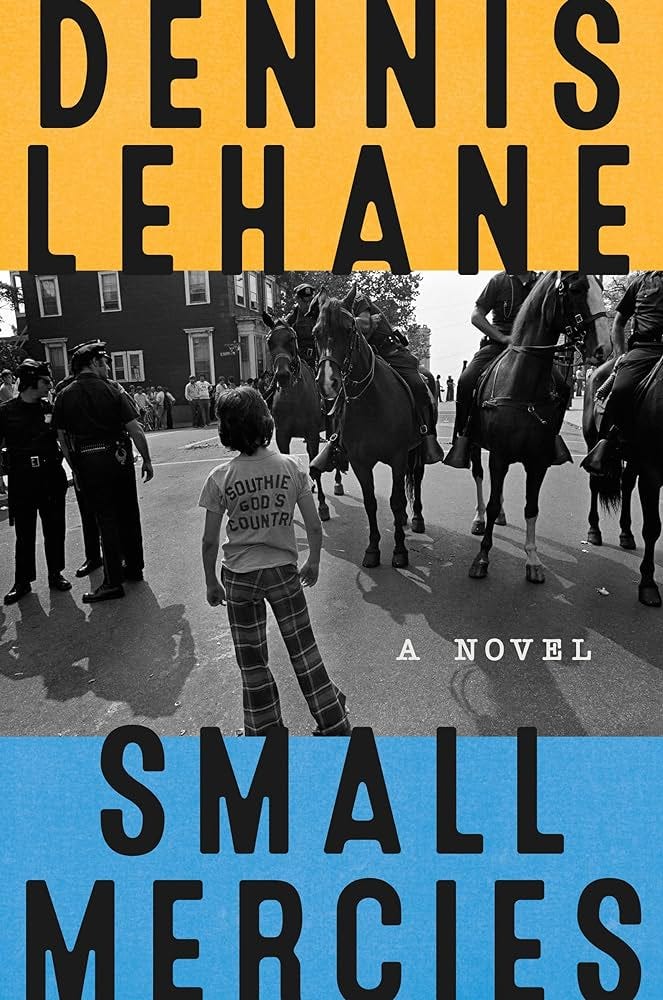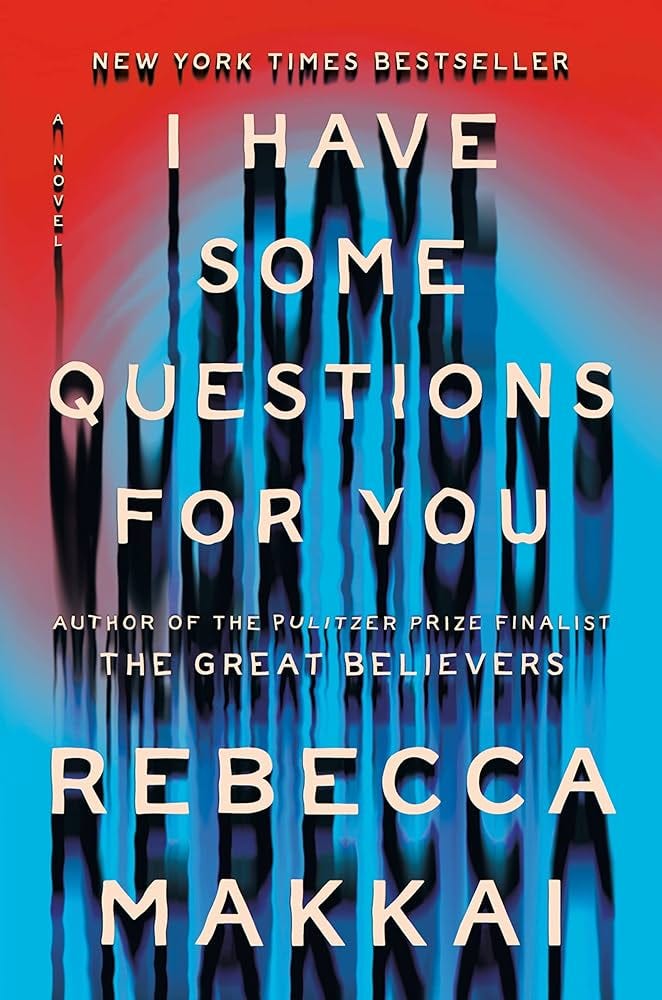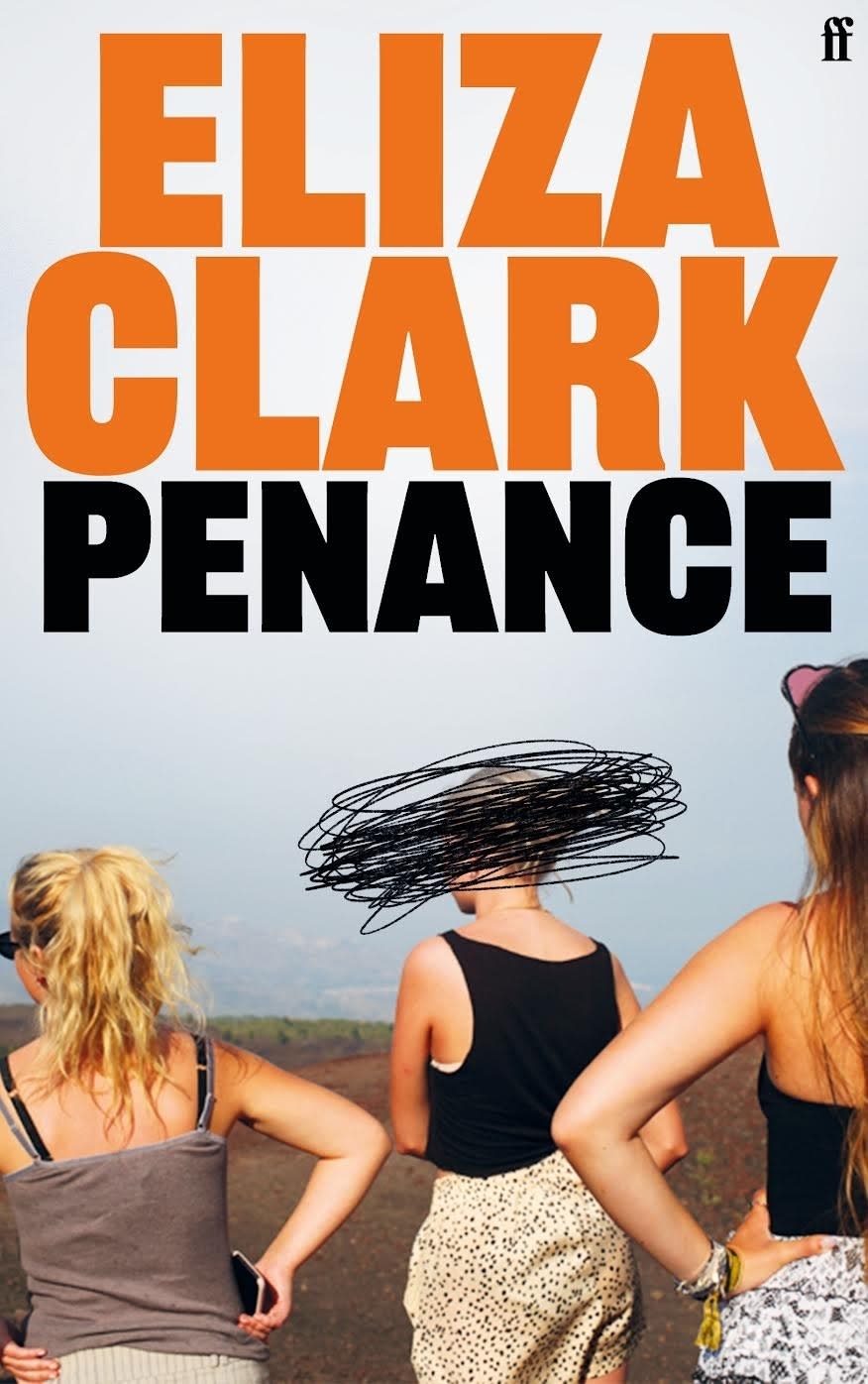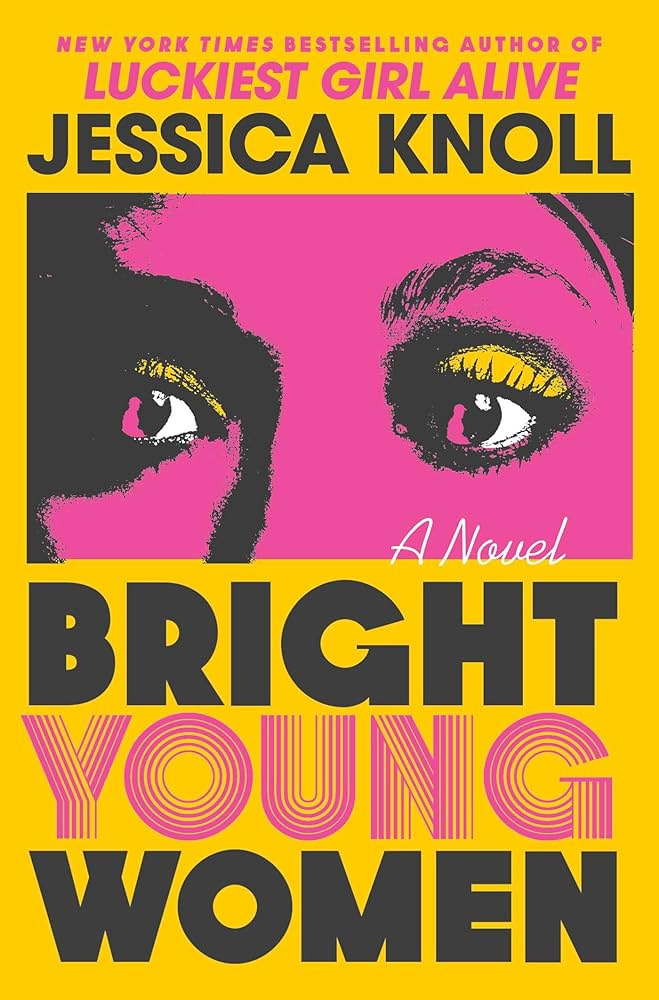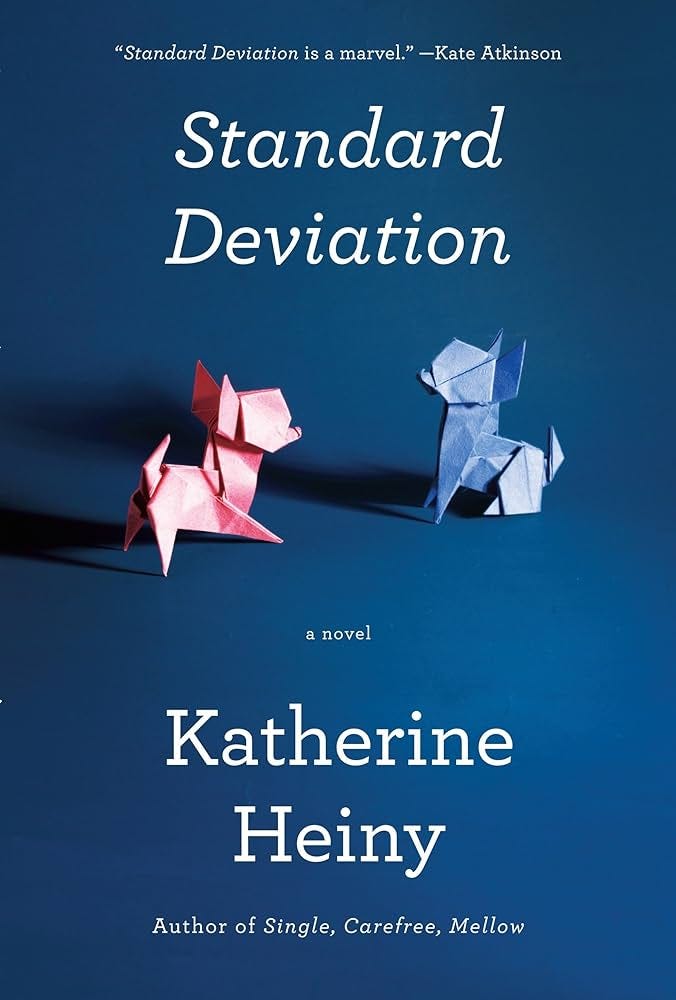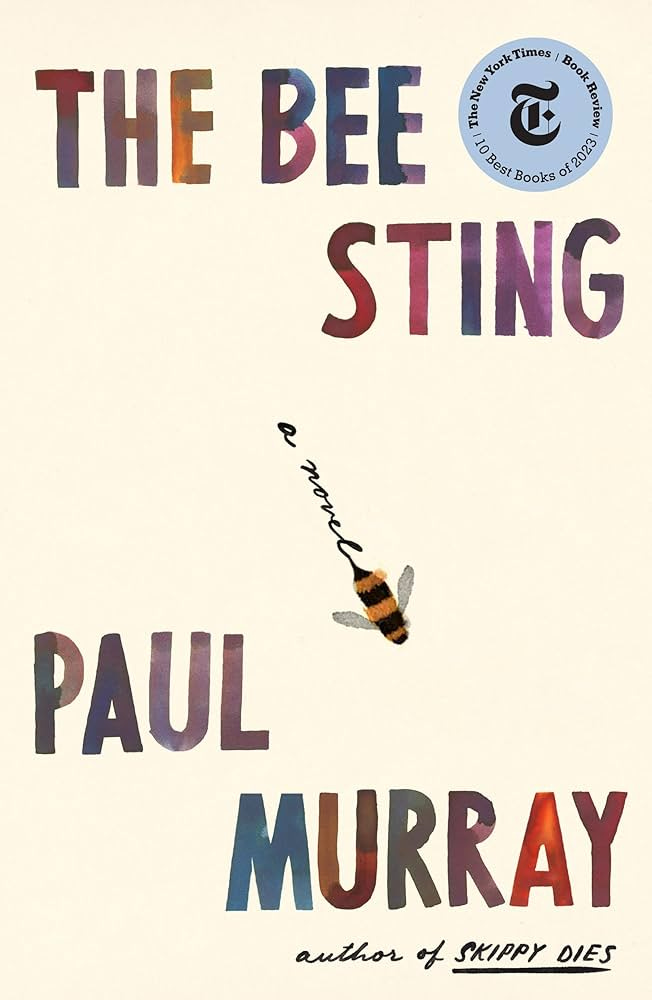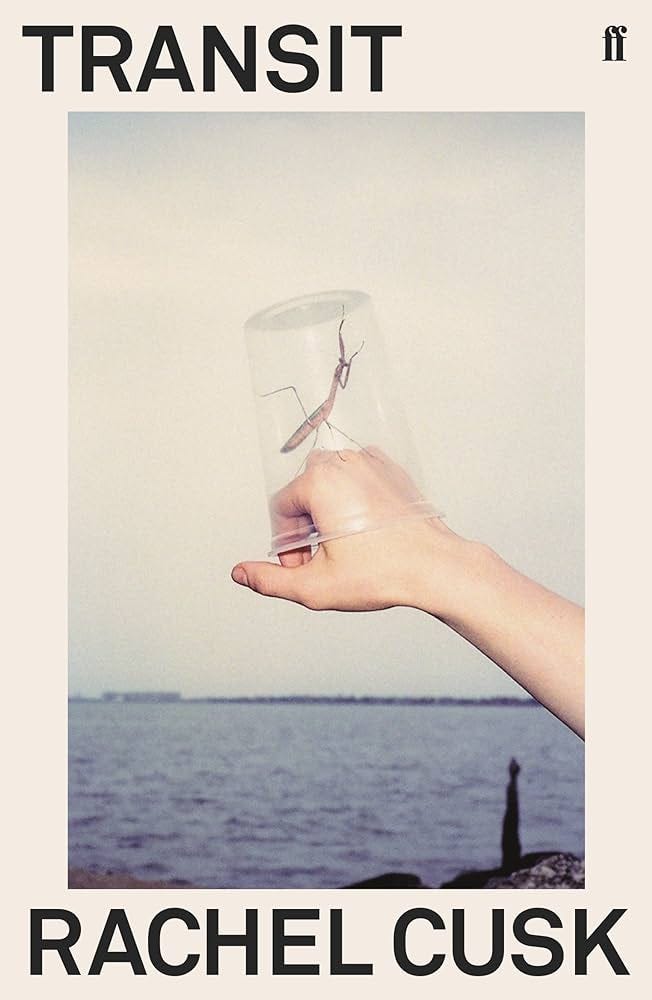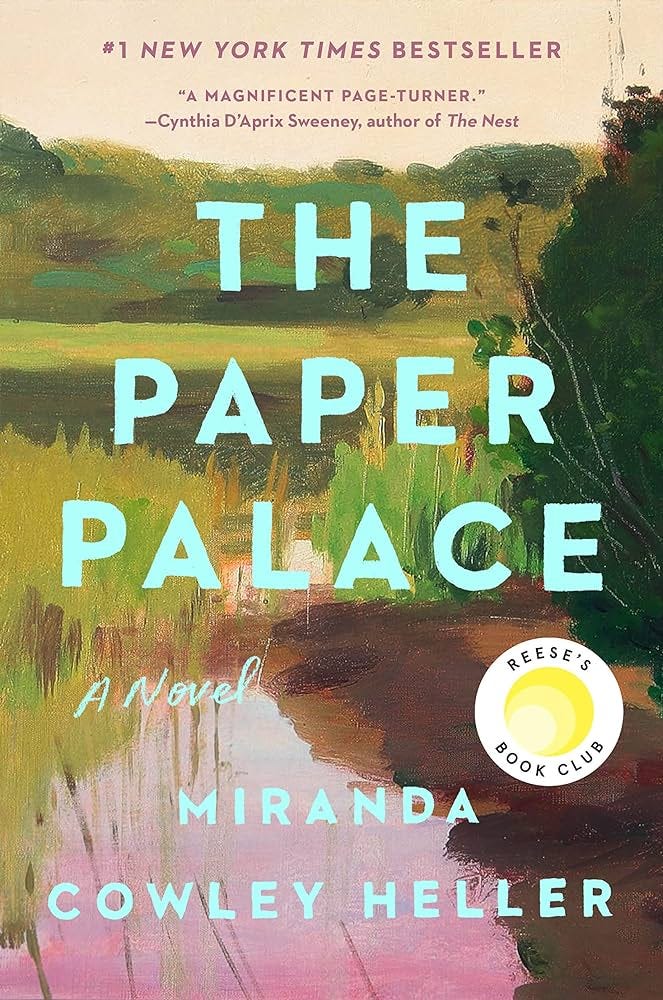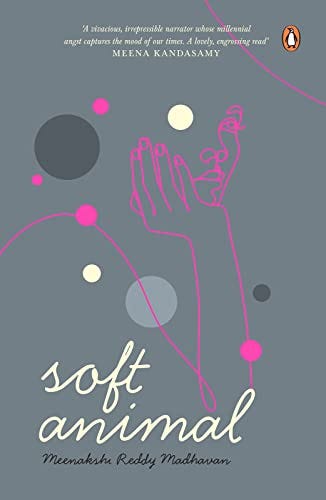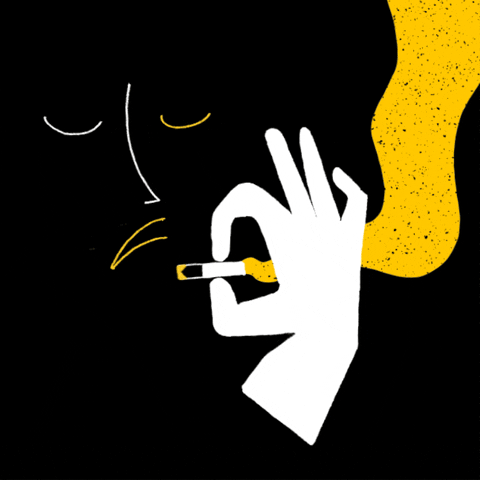My beloved bookworms!
It is here! My annual “these are the best things I read all year.” I’d like to do a little ceremony around each one, because really, we’ve come so far together, but honestly, seeing as it is the 27th of December, right in the middle of Dead Week and you probably have all your reading material lined up already for the rest of your holidays, this newsletter may not excite you as much as it does me, but here we are together anyway for the last time this year so let’s have a good time together.
Note: this newsletter is too long for Gmail so click on the title to read it in your browser.
Note two: I have linked to Amazon and yes, I used affiliate links but feel free to just use the Amazon page to see the Kindle preview as I do and then just buy the book from your local bookstore/borrow from the library.
Before I begin, here’s a little reminder that your friendly local newsletter runs on your support! So buy me a coffee, add a tip to that tip jar and keep me in books for the next year.
People are always asking me how I manage to read so much and so frequently. Alas, I have no one size fits all answer, but I think it comes down to three basic things:
-
I count reading as part of writing so any time I spend reading, I tot up to actual novel writing. This is, in effect, my full-time job.
-
Luckily, reading is also my favourite activity, so I also don’t have to force myself to do it. Abandon my phone in one room while I read in another? Bliss. I also leave my phone on silent literally all the time which my friends know (and sort of hate?). Sorry if there was an emergency! I was reading!
-
Again, out of my control, but I read really fast. Not speed reading technically, like, I never learned how to do it, but I do manage to inhale a gripping book in about a day if I’m left to my own devices.
And that’s it, really. No magic formula, just spending a large chunk of my free time doing it. I seem to have a lot more free time than most people, perhaps because I don’t do meetings or bother too much about basic domestic admin like, oh, I don’t know, cleaning my house every day. Besides writing (I’m working on a new novel as we speak!), I do a lot of other stuff as well: I’ve taken up exercise again, for instance. I have a healthy social life. I cook almost every day. I watch TV. And yet, with the right juggling, I still have hours on end to devote to reading. Maybe it’s a priority thing, reading has been important to me since I first started doing it. I’ll tell you one thing that has changed though: I am slowing down. There was a time when I could do 200 books a year easily, not counting re-reads. Now, though, I’m only at 117, a respectable figure but a slip from my usual standards. Never mind, 115 was an easy goal to reach even though I meandered all over the place and I think I’ll set the same number for next year.
On to the books!
A Trendy Book Actually Published This Year
Ok, I read a lot of “next big things” this year and most of them left me cold except for Yellowface by RF Kuang. It’s not the best book ever written or anything and the writing is a bit… tacky in some places, not super smooth, felt like it was filler or a last minute addition, but damn, it kept me hooked. A satirical look at the publishing industry? Oh my god. I liked it a lot—but hated the ending. So there’s that.
The Book I’m Not Sure I Enjoyed But Still Think About From Time To Time
Obviously I had to borrow this from my local library because of the title, but this was such an odd little book. Like a fever dream of the city. The narrator almost certainly has an eating disorder, but this is never spelt out. She goes to language school and she languishes in her small sublet. She meets people and is extremely awkward with them. She is frantically, hectically lonely, in a way that almost seems active. It was just weird. I think I actually loved it in retrospect.
The Book That Introduced Me To A Long Dead Author Who I’m Now Going Out Of My Way To Hunt Out
The one Barbara Pym fact I keep trotting out to people is how she was really popular and then she wasn’t and her publishers dropped her so she had a nervous breakdown and stopped writing and I AM THIS CLOSE TO BECOMING BARBARA PYM. (Seriously. Please keep me relevant.) Excellent Women is my favourite kind of British story: an older woman, a “spinster,” and how she lives this ordered little life and then suddenly new people break into it and she does things quite out of the ordinary. Perfection. And so funny.
An Old Book I Read In A New Way Part I
Old time readers of this newsletter will know I came to David Copperfield late but was a swift and ready convert. To read then Demon Copperhead which takes that story and places it among poor white people in rural Appalachia where the opioid crisis looms, my god, what genius. I didn’t expect it to work but it did in a beautiful way and it was such a sad book which shouldn’t surprise me because look at the source material, but still. Lovely.
An Old Book I Read In A New Way Part II
Speaking of sad, this retelling of the Ramayana ends with Sita’s walking through the fire to prove her “purity” (yuck) after Ravana abducts her and it is heartrending. Set in a Mumbai chawl, the characters are all locals in two small buildings abutting each other. Like Demon Copperhead, The Memoirs of Valmiki Rao made me wistful, most of all, for missed potential.
An Old Book I Read In A New Way Part III
Yes, that Anne Frank’s diary. I know, I’m as surprised as you are. I read the original years ago, when I was a teenager myself and yes, I was moved by her story then and eventually, forgot the details until this popped up—another library find—and I found myself curious. A beautiful intricate adaptation, Anne comes to life with the drawings and some bits of her original diary which were censored by her father, her curiosity about her budding sexuality for instance, are brought to life in large full colour panels. The original diary is great, don’t get me wrong, but this graphic novel just elevates it. I promise.
A Trendy Book From Years Gone By That I Only Just Picked Up
And then I read the follow up Candy House which wasn’t half as nice, in fact, I picked it up again earlier this month forgetting if I had already read it. A Visit From The Goon Squad is interconnected short stories of a revolving cast of characters, mostly in the music industry. One stand out story is told entirely through a powerpoint presentation. Another is the story of a young boy on holiday with his father and his father’s new girlfriend. One is told like a tabloid article and harks back to a reference in a previous chapter. It’s so innovative and fun and yes, it was the It Book of its year but it’s not at all dated. Slim enough to fit in your purse as well, I read it on several underground journeys.
The Best Crime Novel Part I
Set in 1974, when Boston had a heatwave and there was trouble over busing black children to white schools, this book is not so much a police procedural as it is a meditation on what it’s like to be poor and without options. Small Mercies unfolds like an origami flower, just as delicate, just as intricate.
The Best Crime Novel Part II
Prep meets podcast, A Secret History meets A Secret Place. This is dark academia, baby, but full of twenty first century references. A teacher goes back to the school she attended as a teenager, takes a podcast class and the students want to investigate what happened to a girl who disappeared years ago. Twist: the girl was the teacher’s roommate. I’d never read Rebecca Makkai before but this made me run for her backlist immediately.
The Best Crime Novel Part III
All the crime novels I’ve picked this year are not exactly Crime Novels. There’s no hardboiled detective talking to suspects and figuring things out. Like I Have Some Questions For You and its true crime podcast, Penance uses a slightly different format to talk about the crime in question: the murder of a teenager by her peers, as interviewed by a true crime writer. There’s Tumblr, there’s bullying, there’s a small town, there are groups of girls who are terrifying. All my favourite things! You already know who did the killing in the beginning, so it’s more a whydunnit than a who, which it turns out, is my favourite kind of crime.
The Best Crime Novel Part IV
How about a Ted Bundy novel that puts the focus on the survivor as opposed to almost worshipping Bundy—an ordinary man who killed people? A fiercely feminist point of view, Bright Young Women featured one of my favourite main characters of all time. Pamela Schumacher, our heroine, firmly takes the narrative away from the serial killer and talks about what he left in his stead, making his victims so human, so real that you want to remember their names not his.
The Best “Light” Book
Although would I call it light? It was funny, it was smart, it gave me a book hangover in the best/worst way: I didn’t want to read anything else. There’s a good but strange marriage, a boy on the autistic spectrum who makes a lot of origami and just a good story. A comforting story. Snuggle up with this book on cold winter nights, it’s warmer than a hot water bottle.
The Best Really Long Novel About A Family
An Irish family breaks apart at the centre of this Booker-shortlisted novel. Each chapter is told from the point of view of a different member: the teenage daughter getting in with the wrong crowd and going off to college, the young son who is making questionable friends on the internet, the father who is losing his business, the mother who is wondering how her life turned out this way. About one third into the book I was actually sitting up to take in their family secrets, when I had a few pages left, I was deeply in pain by what we do to the people we love.
The Best Autofiction
There’s one part of this story about a female author who moves back to London after her marriage breaks up that I keep thinking about. She’s at a dinner party and one of the guests tells her that she (the guest) reads so much that she can’t tell whether something has actually happened or whether she read it in a book. This keeps happening to her but there’s a memory of a cocker spaniel she could swear was true, Tiffy. But her husband denies that Tiffy exists, and she thinks she’s going mad, but then she finds a photo of herself with a dog and her husband says, “Oh, Taffy.” Transit is full of moments like this, you stop, you savour, you relish the prose.
The Best Literary Fiction
Delving deep into the past, The Paper Palace starts out with a really complicated but simple premise: Elle has just slept with her best friend, a man she has known with childhood. The present day narrative of the book unfolds over a single day, as Elle tries to make up her mind what to do next. Her husband and three children are on holiday with her, as is her mother, as is the best friend and his wife. The past darts from Elle’s childhood to her early years as an adult, the paper palace in question is a lake house made of cardboard fragments, where her family returns every summer. Everything is so lushly described that by the end of it you could be by that lake, you could be in Elle’s mind, age 4, as she gazes through the bottles in the living room to see her beloved father enter the door.
Bonus Number 16! The Best Book I Published This Year
But don’t listen to me, listen to Sayari Debnath in Scroll: “Soft Animal is about millennial marriage and motherhood, but it is also about how at the heart of it, we are all selfish, vengeful, self-preserving animals who crave touch and softness. While most of us manage to chain this unlikeable animal, in the direst times, we don’t hesitate to let it loose and devour the façade of humanity that we have so carefully built around us. I have rarely come across books by Indian authors that dwell on the rough edges of marriage or unwanted pregnancies, and this might be the only book that does both against the existential threat of the pandemic.”
If you haven’t read it yet, but you like the way I write (and you must because you’re reading this!) here is a link.
What were your favourites this year? Leave me a comment.
And that’s all from me in twenty twenty three! I wish you all a happy new year, however you’re celebrating and I’ll see you again soon. I might take a little break from this newsletter in January because I’m feeling slightly burnt out but then again I might not so we’ll all see won’t we?
xx
m
Who are you? Meenakshi Reddy Madhavan, writer of internet words (and other things) author of eight books (support me by buying a book!) and general city-potter-er.
Follow me on Instagram! (I have a special account for book recommendations)
Forward to your friends if you liked this and to the highly subjective best books lists you’ve read already if you didn’t.
Also, write back to me! I love to hear from you.



